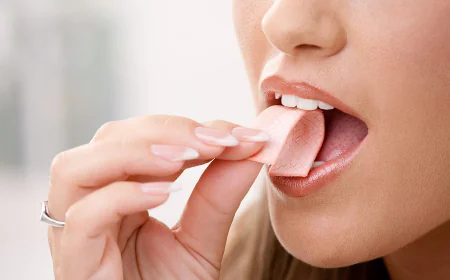Morning Breath: Normal Causes, Warning Signs, and When to See a Dentist
Bad Morning Breath: Bad breath is very common upon waking, and people often dismiss it as normal morning breath. But is it always normal?

Anyone who has ever woken up with bad breath probably just shrugged it off as normal. Most of the time, bad morning breath is the result of not making as much saliva while you sleep, which allows the bacteria in your mouth to multiply, causing odors, usually from sulfur compounds. This kind of morning odor is temporary and normally disappears right after you brush your teeth, rinse your mouth, or even drink water. Occasionally, however, bad morning breath can denote infections, gum diseases, or neglect of oral hygiene, so distinguishing normal from abnormal bad morning breath is important.
Morning odor occurs because our mouths naturally contain an array of bacteria, which saliva keeps somewhat under control during the day. At night, saliva production decreases, allowing these bacteria to break down food particles and release foul-smelling compounds. This is why bad breath is most noticeable when we wake up.
Normal morning breath typically fades quickly with basic oral hygiene. Brushing your teeth before bed, cleaning your tongue, and staying hydrated can significantly reduce this problem. But if the odor does not go away even after cleaning your mouth, or if it smells stronger than usual, it may signal an underlying infection. Studies have shown that people with periodontal disease have higher levels of volatile sulfur compounds (VSCs), which contribute to persistent bad breath.
Signs that morning breath may be linked to an infection include red, swollen, or bleeding gums; a white coating or sores in the mouth; tooth pain or sensitivity; and pus-filled areas suggesting an abscess. Frequent sinus infections, throat problems, or uncontrolled diabetes can also cause chronic bad breath.
Want to get your story featured as above? click here!
Want to get your story featured as above? click here!
A simple 60-second routine can help control morning breath effectively: spend 20 seconds scraping your tongue to remove bacteria, 20 seconds flossing to eliminate trapped food particles, and 20 seconds rinsing or hydrating with water or an alcohol-free mouthwash to boost saliva production.
You should see a doctor or dentist when bad breath won't go away, if your gums are swollen or sore, if you find white or red patches in your mouth, sores that keep returning, or have a feeling of dry mouth constantly. These could point to gum disease, tooth decay, or another condition.
To keep fresh breath, brush your teeth at least twice a day with fluoride toothpaste; frequently clean your tongue, drink plenty of water, avoid smoking and too much alcohol, limit sugary snacks, and visit your dentist every six months.



































.jpeg)



































































































